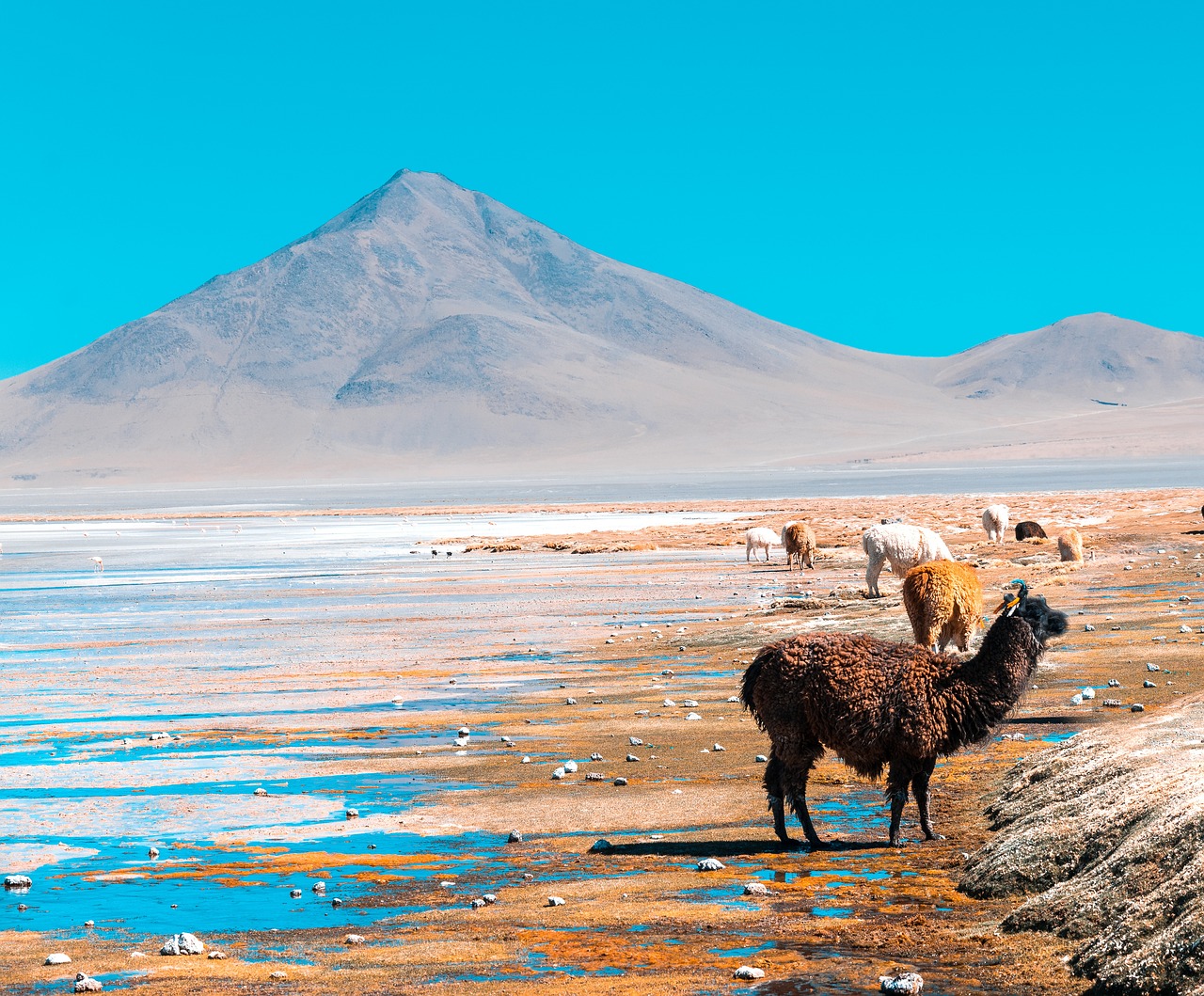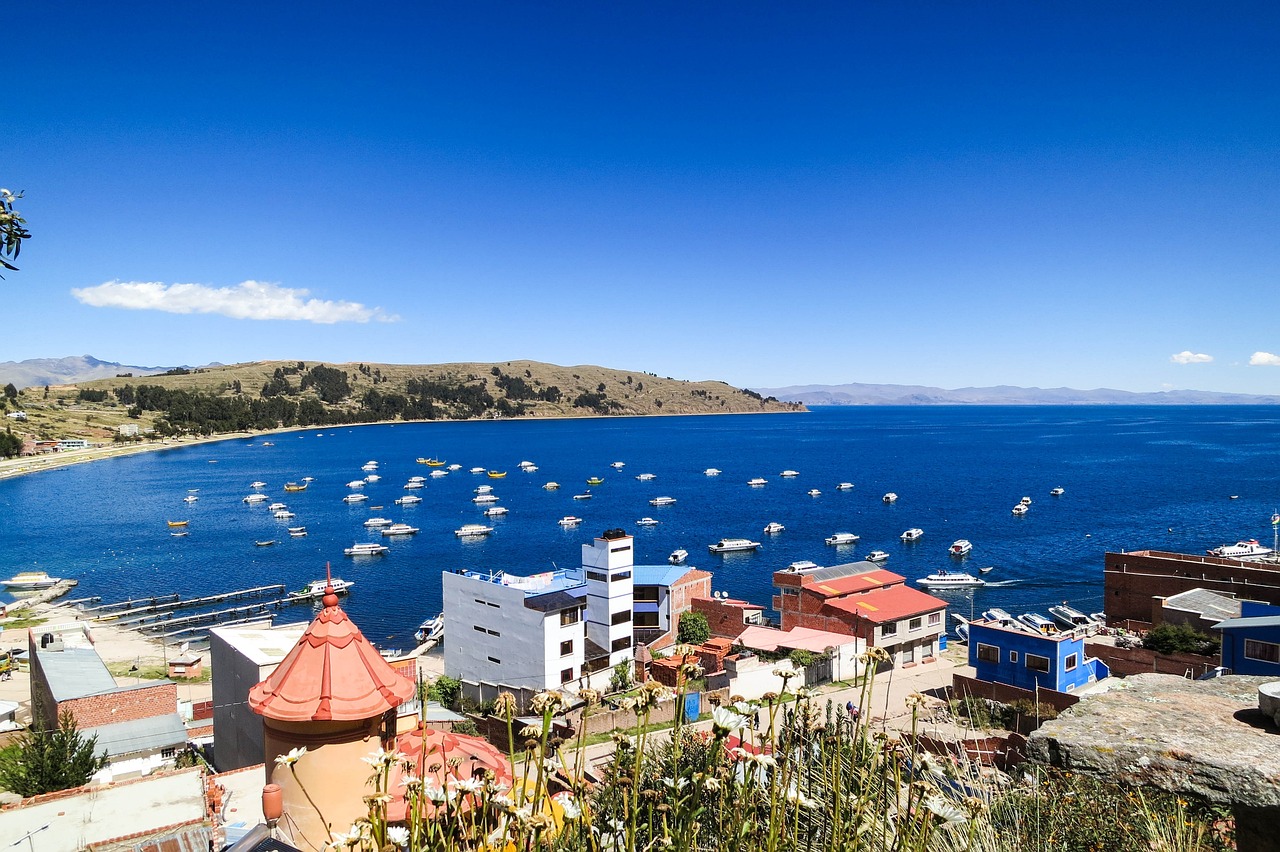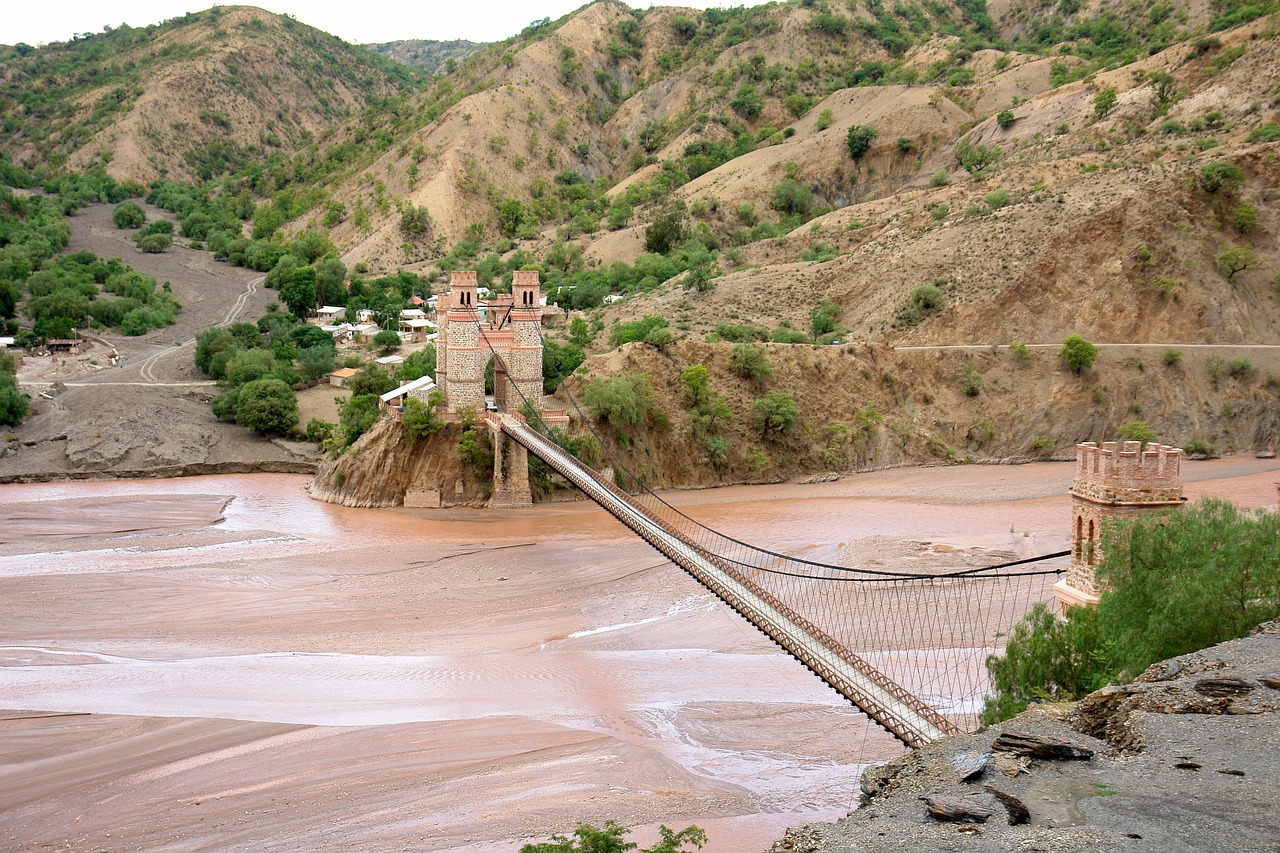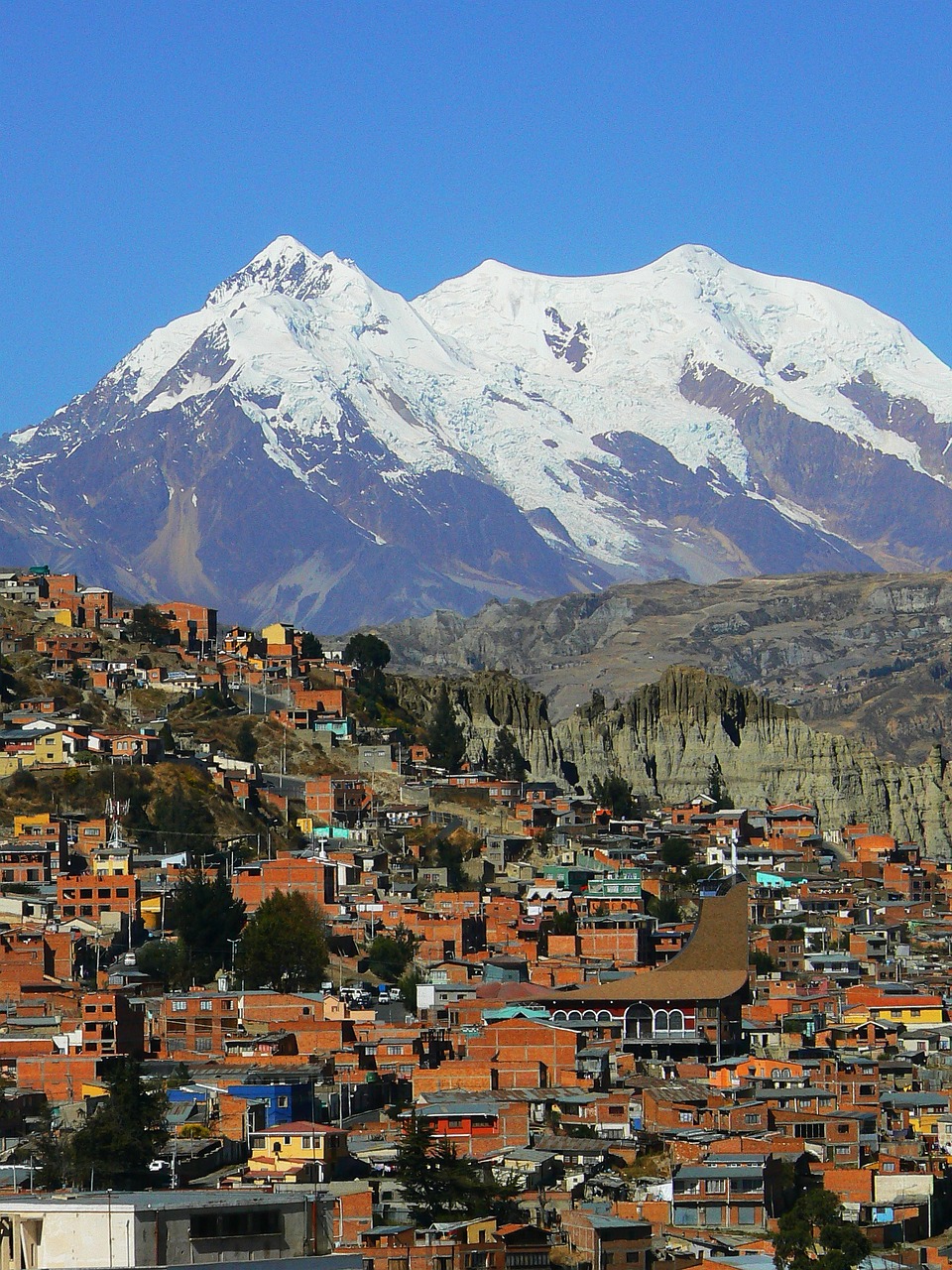Introduction
Bolivia, located in the heart of South America, is a landlocked country known for its diverse landscapes, rich cultural heritage, and vibrant indigenous communities. With its breathtaking mountains, lush rainforests, and sprawling salt flats, Bolivia offers a unique experience for digital nomads and expats seeking adventure and cultural immersion. This article will provide a comprehensive guide to living, working, and exploring Bolivia as a digital nomad or expat.
Bolivia For Digital Nomads
Bolivia is an increasingly popular destination for digital nomads due to its affordable cost of living, stunning natural beauty, and growing digital infrastructure. The country offers a range of co-working spaces, cafes with reliable Wi-Fi, and a supportive community of like-minded individuals. Whether you’re a freelancer, remote worker, or entrepreneur, Bolivia provides an inspiring backdrop for your work while allowing you to explore its many attractions during your downtime.
- Co-working Spaces: Bolivia’s major cities, such as La Paz and Santa Cruz, offer a variety of co-working spaces equipped with high-speed internet, comfortable workstations, and networking opportunities. Some popular options include Selina, Impact Hub, and Nómada Co-Working.
- Cafes with Wi-Fi: If you prefer a more relaxed work environment, Bolivia has numerous cafes with reliable Wi-Fi where you can set up your laptop and enjoy a cup of local coffee. Some recommended spots include Café del Mundo in La Paz, Café Vida in Cochabamba, and Café 591 in Santa Cruz.
- Digital Community: Bolivia has a growing community of digital nomads and expats who organize meetups, workshops, and networking events. Joining online forums and social media groups can help you connect with like-minded individuals and tap into the local digital community.
Bolivia Image 1:

Bolivia Climate
Bolivia’s climate varies greatly depending on the region and altitude. The country experiences a combination of tropical, subtropical, and highland climates. The lowland areas, including the Amazon rainforest, have a tropical climate with hot and humid conditions throughout the year. The highland regions, such as the Andean plateau, have a cooler climate with distinct wet and dry seasons.
- Highland Climate: The highland regions, including La Paz and Sucre, have a cool and dry climate with average temperatures ranging from 10 to 20 degrees Celsius (50 to 68 degrees Fahrenheit). The dry season runs from May to October, while the wet season occurs from November to April.
- Lowland Climate: The lowland areas, such as Rurrenabaque and Trinidad, have a hot and humid climate with average temperatures ranging from 25 to 35 degrees Celsius (77 to 95 degrees Fahrenheit). The rainy season lasts from November to March, with heavy downpours and occasional flooding.
- Altiplano Climate: The Altiplano region, which includes the famous Uyuni Salt Flats, has a harsh and extreme climate due to its high altitude. Temperatures can drop below freezing at night, and the region experiences strong winds and intense sunlight during the day.
Bolivia Image 2:

Bolivia Expat Communities
Bolivia has a growing expat community, particularly in cities like La Paz, Santa Cruz, and Cochabamba. These communities provide support, networking opportunities, and a sense of belonging for expats living and working in Bolivia. Connecting with fellow expats can help ease the transition and provide valuable insights into the local culture and lifestyle.
- La Paz Expat Community: La Paz, the administrative capital of Bolivia, has a diverse expat community that includes professionals, retirees, and digital nomads. Expats often gather at popular hangouts like Café del Mundo and The English Pub, where they can socialize and exchange information.
- Santa Cruz Expat Community: Santa Cruz, Bolivia’s largest city, is known for its vibrant expat community. The city has a range of international schools, social clubs, and expat-friendly neighborhoods like Equipetrol, where many expats choose to reside.
- Cochabamba Expat Community: Cochabamba, located in the central part of Bolivia, has a growing expat community attracted to its pleasant climate and affordable cost of living. The city offers various social and networking events, such as language exchanges and cultural festivals.
Bolivia Image 3:

Living As An Expat In Bolivia
Living as an expat in Bolivia offers a unique cultural experience, affordable living costs, and a chance to explore the country’s natural wonders. However, it’s important to be aware of certain challenges and considerations when settling in Bolivia.
- Language: Spanish is the official language of Bolivia, and while many locals also speak indigenous languages, having a basic understanding of Spanish will greatly enhance your experience as an expat. Consider taking language classes or using language learning apps to improve your language skills.
- Cost of Living: Bolivia is known for its affordable cost of living, particularly in comparison to other South American countries. Accommodation, transportation, and dining out are generally much cheaper than in Western countries.
- Healthcare: Bolivia has a mix of public and private healthcare facilities. While public healthcare is available, it may not meet the standards of expats accustomed to Western healthcare systems. Many expats choose to have private health insurance or access private clinics for their healthcare needs.
- Cultural Adaptation: Bolivia has a rich cultural heritage, and adapting to local customs and traditions can greatly enhance your experience. Embrace the local cuisine, participate in traditional festivals, and engage with the local community to gain a deeper understanding of Bolivian culture.
Bolivia Cost Of Living
Bolivia offers a relatively low cost of living compared to many other countries, making it an attractive destination for digital nomads and expats on a budget. The cost of living can vary depending on the city and lifestyle choices, but overall, Bolivia offers affordable accommodation, dining, transportation, and entertainment options.
- Accommodation: Renting an apartment in Bolivia is generally affordable, with prices varying depending on the city and neighborhood. In major cities like La Paz and Santa Cruz, a one-bedroom apartment in a desirable area can range from $300 to $600 per month.
- Food and Dining: Eating out in Bolivia is relatively inexpensive, especially if you opt for local street food and traditional eateries. A meal at an inexpensive restaurant can cost around $3 to $5, while a three-course meal at a mid-range restaurant may range from $10 to $20.
- Transportation: Public transportation in Bolivia is affordable and convenient. Buses and minibusses, known as “micros,” are the primary modes of transportation within cities and between towns. Fares typically range from $0.25 to $1, depending on the distance.
- Entertainment and Recreation: Bolivia offers a range of affordable entertainment and recreational activities. Visiting museums, exploring national parks, and taking part in cultural festivals are often free or have minimal entrance fees. Outdoor activities like hiking and biking are popular and cost-effective ways to enjoy Bolivia’s natural beauty.
Bolivia Visas For Digital Nomads
Digital nomads planning to stay in Bolivia for an extended period may need to consider the appropriate visa options. The visa requirements can vary depending on your nationality and the purpose of your stay. It is essential to consult with the nearest Bolivian embassy or consulate to ensure you have the correct visa and comply with all necessary regulations.
- Tourist Visa: Many nationalities can enter Bolivia as tourists without requiring a visa. The initial tourist visa allows a stay of up to 90 days, which can be extended for an additional 90 days at the immigration office in Bolivia.
- Temporary Residence Visa: If you plan to stay in Bolivia for more than 180 days, you may need to apply for a temporary residence visa. This visa requires specific documentation, including proof of income, a criminal record check, and a medical certificate.
- Work Visa: If you plan to work for a Bolivian company or establish your own business in Bolivia, you will need to apply for a work visa. This visa requires sponsorship from a Bolivian employer or proof of business registration.
Bolivia Transportation
Getting around Bolivia is relatively easy, thanks to its well-connected transportation network. From domestic flights to buses and taxis, there are various options to explore the country’s diverse regions and cities.
- Air Travel: Bolivia has several domestic airports that connect major cities and tourist destinations. Boliviana de Aviación (BoA) and Amaszonas are the main airlines operating domestic flights in Bolivia.
- Buses: Buses are the most common mode of transportation for both short and long distances within Bolivia. There are different types of buses available, ranging from basic local buses to more comfortable long-distance coaches.
- Taxis and Ride-Sharing: Taxis are readily available in major cities and towns in Bolivia. It is advisable to use licensed taxis or ride-sharing services like Uber for safety and convenience.
- Trains: While Bolivia’s train network is not as extensive as its bus network, there are scenic train routes available, such as the famous Death Road route from La Paz to Coroico.
Bolivia Airports
Bolivia is served by several international and domestic airports, providing convenient access to different regions of the country. Whether you’re arriving as a digital nomad or planning to explore Bolivia’s natural wonders, these airports offer convenient transportation options.
- El Alto International Airport (LPB): Located in El Alto, near La Paz, this is the main international airport in Bolivia. It serves as the gateway to the capital city and offers connections to major cities in South America.
- Viru Viru International Airport (VVI): Situated in Santa Cruz, Viru Viru International Airport is Bolivia’s busiest airport. It serves as a major hub for domestic and international flights, connecting Bolivia to various destinations in South America.
- Jorge Wilstermann International Airport (CBB): Located in Cochabamba, this airport offers domestic and limited international flights. It is an important transportation hub for travelers visiting central Bolivia.
- Uyuni Airport (UYU): Uyuni Airport provides access to the famous Uyuni Salt Flats. Flights from La Paz and Sucre operate to Uyuni, allowing visitors to experience this unique natural wonder.
Facts About Bolivia
Bolivia is a country with a rich history, diverse culture, and unique geographical features. Here are some interesting facts about Bolivia:
- Salar de Uyuni: Bolivia is home to the world’s largest salt flat, Salar de Uyuni. This vast expanse of salt stretches over 10,000 square kilometers and offers stunning landscapes that attract tourists from around the globe.
- La Paz: Bolivia’s administrative capital, La Paz, is the highest capital city in the world, situated at an altitude of around 3,650 meters (11,975 feet) above sea level. The city’s unique location offers breathtaking views of the surrounding mountains.
- Lake Titicaca: Shared with Peru, Lake Titicaca is the highest navigable lake in the world. It is believed to be the birthplace of the Inca civilization and is home to several indigenous communities.
- Witches’ Market: La Paz is known for its fascinating Witches’ Market, where traditional healers sell herbs, potions, and other mystical items. It is a unique cultural experience and offers insight into Bolivia’s indigenous beliefs and practices.
Fun Things To Do In Bolivia
Bolivia offers a wide range of exciting activities and attractions for digital nomads and expats looking to explore the country’s natural wonders and cultural heritage. Here are some fun things to do in Bolivia:
- Visit the Uyuni Salt Flats: A visit to the Salar de Uyuni is a must-do in Bolivia. Explore the vast salt flats, marvel at the unique landscapes, and capture incredible photographs.
- Explore the Amazon Rainforest: Bolivia is home to a portion of the Amazon rainforest, offering opportunities for wildlife spotting, jungle treks, and immersive eco-tourism experiences.
- Hike the Inca Trail: Follow in the footsteps of the ancient Incas by hiking the Inca Trail to Machu Picchu. This multi-day trek takes you through stunning mountain scenery and culminates in a visit to the iconic Inca ruins.
- Discover Indigenous Culture: Immerse yourself in Bolivia’s rich indigenous culture by visiting traditional markets, participating in cultural festivals, and learning about ancient traditions and customs.
Popular Bolivia Tourist Attractions
Bolivia boasts numerous tourist attractions that showcase its natural beauty, cultural heritage, and historical significance. Here are some popular tourist attractions to explore in Bolivia:
- Tiwanaku: Visit the ancient archaeological site of Tiwanaku, a UNESCO World Heritage Site, and learn about the pre-Columbian Tiwanaku civilization.
- Madidi National Park: Explore the biodiverse Madidi National Park, located in the Amazon rainforest, and discover its rich flora and fauna through guided tours and wildlife spotting.
- Valle de la Luna: Discover the otherworldly landscapes of Valle de la Luna (Moon Valley), located near La Paz. The unique rock formations and lunar-like terrain make for a surreal experience.
- Potosi: Visit the historic city of Potosi and explore its colonial architecture, including the iconic Cerro Rico silver mine, which played a significant role in Bolivia’s history.
Bolivia Cities
Bolivia is home to several vibrant cities, each offering its own unique charm, cultural attractions, and digital nomad-friendly amenities. Here are some notable cities to consider when living or traveling in Bolivia:
- La Paz: Bolivia’s administrative capital, La Paz, is a bustling city nestled in the Andes Mountains. It offers a blend of modern infrastructure, indigenous culture, and stunning vistas.
- Santa Cruz: Located in the eastern lowlands, Santa Cruz is Bolivia’s largest city and a major economic center. It boasts a lively nightlife, excellent dining options, and a growing expat community.
- Cochabamba: Known as the “City of Eternal Spring” due to its pleasant climate, Cochabamba offers a laid-back lifestyle, beautiful parks, and a thriving arts and music scene.
- Sucre: Sucre, Bolivia’s constitutional capital, is renowned for its well-preserved colonial architecture and rich history. It is home to several universities, making it a vibrant and youthful city.
Bolivia Internet Speed and Accessibility
Internet access in Bolivia has improved significantly in recent years, especially in major cities and tourist destinations. While internet speeds may not be as fast as in some developed countries, digital nomads and expats can still find reliable connections for work and leisure activities.
- Internet Speed: Internet speeds in Bolivia can vary depending on the location and service provider. In major cities, you can expect speeds ranging from 5 to 20 Mbps, while in more remote areas, speeds may be slower.
- Wi-Fi Availability: Many cafes, co-working spaces, and hotels in Bolivia offer Wi-Fi for customers. It is advisable to inquire about the quality and reliability of the Wi-Fi connection before settling in a particular location.
- Mobile Data: Mobile data is widely available in Bolivia, with several providers offering prepaid SIM cards and affordable data plans. This allows digital nomads to stay connected while on the go.
Bolivia Accommodation
Bolivia offers a range of accommodation options to suit different budgets and preferences. Whether you prefer hotels, vacation rentals, or apartment rentals, there are plenty of choices available in Bolivia’s major cities and tourist destinations.
Popular Bolivia Hotels
Bolivia has a variety of hotels catering to different needs and budgets. From luxury hotels to budget-friendly options, here are some popular hotels in Bolivia:
- Casa Grande Hotel: Located in La Paz, Casa Grande Hotel offers luxurious amenities, spacious rooms, and stunning views of the city.
- Hotel Camino Real: Situated in Santa Cruz, Hotel Camino Real is a five-star hotel known for its elegant rooms, outdoor pool, and top-notch service.
- Hotel de Sal Luna Salada: This unique hotel is made entirely of salt and is located near the Uyuni Salt Flats. It offers a memorable and immersive experience for visitors.
Popular Bolivia Vacation Rentals
Vacation rentals are a popular choice for digital nomads and expats looking for a home-away-from-home experience in Bolivia. Here are some popular vacation rentals in Bolivia:
- Lake Titicaca Floating Islands: Stay with local indigenous families on the floating islands of Lake Titicaca for an authentic cultural experience.
- Amazon Jungle Lodges: Experience the wonders of the Amazon rainforest by staying in eco-lodges that offer guided tours, wildlife encounters, and immersion in nature.
- Uyuni Salt Flats Accommodation: Spend a night in a unique accommodation on the Uyuni Salt Flats, such as a salt hotel or a luxury dome camp, and witness the stunning sunsets and starry nights.
Popular Bolivia Apartment Rentals
Apartment rentals are a convenient option for digital nomads and expats looking for long-term accommodation in Bolivia. Here are some popular apartment rental options in Bolivia:
- La Paz Apartments: The neighborhoods of Sopocachi and San Miguel in La Paz offer a range of apartments for rent, from modern high-rise buildings to traditional colonial-style homes.
- Santa Cruz Apartments: The Equipetrol neighborhood in Santa Cruz is popular among expats and offers a variety of apartments with modern amenities and convenient access to restaurants and shops.
- Cochabamba Apartments: The Recoleta and Queru Queru areas in Cochabamba have a selection of apartments available for rent, offering a mix of affordability and comfort.
Bolivia Food & Drink
Bolivian cuisine is diverse, flavorful, and influenced by indigenous traditions as well as Spanish and other international culinary influences. From hearty traditional dishes to street food delights, Bolivia offers a range of culinary experiences.
- Silpancho: Silpancho is a popular Bolivian dish consisting of a breaded and fried beef cutlet served with rice, potatoes, and a fried egg on top.
- Sopa de Mani: Sopa de Mani is a peanut soup often enjoyed as a starter or main course. It is made with ground peanuts, vegetables, and sometimes meat.
- Salteñas: Salteñas are savory pastries filled with meat, vegetables, and a flavorful broth. They are a favorite snack or breakfast item in Bolivia.
- Api and Empanadas: Api is a warm corn-based beverage often enjoyed with cheese-filled empanadas. It is a popular breakfast or afternoon snack in Bolivia.
Bolivia Grocery Stores
Bolivia has a range of grocery stores where you can find both local and imported food products. Here are some popular grocery store chains in Bolivia:
- Hipermaxi: Hipermaxi is one of the largest supermarket chains in Bolivia, offering a wide variety of products, including fresh produce, meat, and household items.
- Supermercados Tia: Supermercados Tia is another popular supermarket chain known for its competitive prices and convenient locations.
- La Canasta: La Canasta is a Bolivian grocery store chain that focuses on providing locally sourced products, including organic and specialty items.
Conclusion
Bolivia offers a unique and enriching experience for digital nomads and expats seeking adventure, cultural immersion, and affordable living. With its diverse landscapes, vibrant cities, and rich cultural heritage, Bolivia provides a captivating backdrop for both work and leisure. From exploring the vast salt flats to delving into indigenous traditions, Bolivia has something to offer every digital nomad and expat. References: – https://www.lonelyplanet.com/bolivia – https://www.boliviabella.com/ – https://www.worldtravelguide.net/guides/south-america/bolivia/ – https://bolivianlife.com/ – https://www.bolivia.travel/

